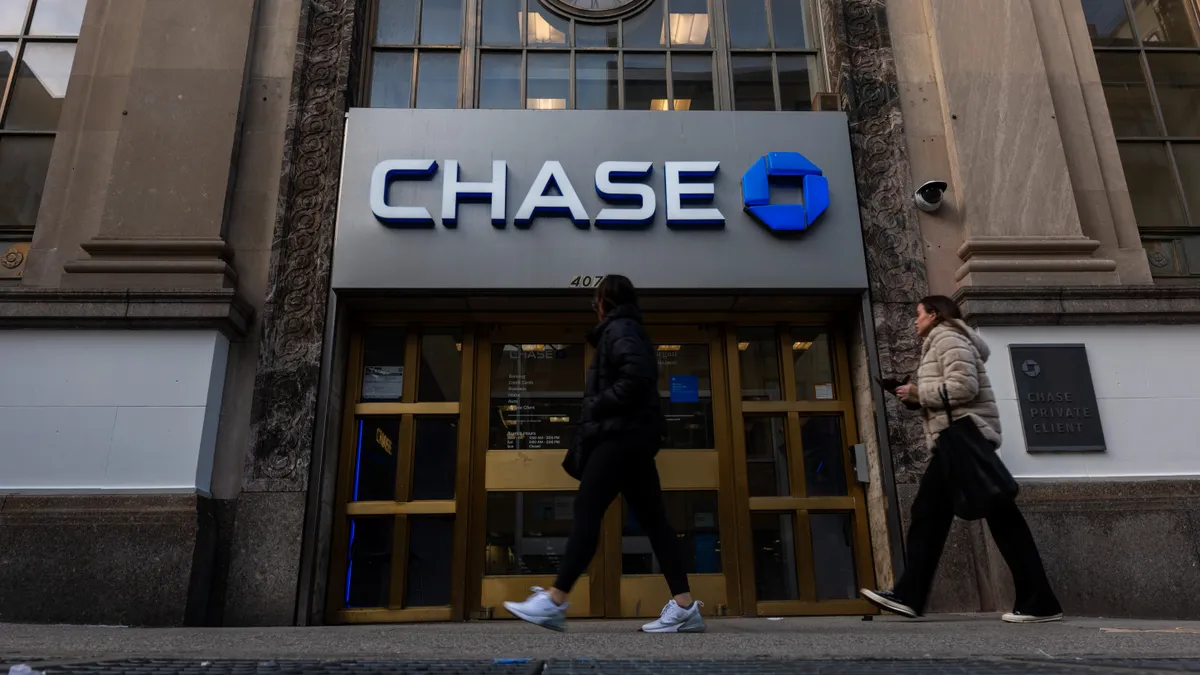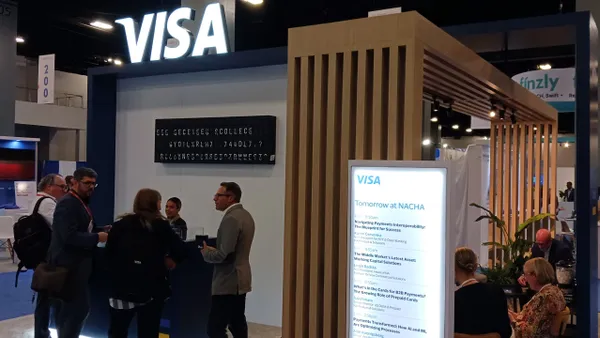TikTok users who latched onto a viral get-rich-quick trend were in violation of the law, JPMorgan Chase said Monday.
Taking advantage of a temporary glitch in Chase’s ATM system, users deposited bad checks and immediately withdrew funds before the checks bounced.
A video posted on social media site showed people in line at a Chase location allegedly waiting to withdraw money they’d just “deposited” via fraudulent check on their banking apps, and another video showed others allegedly celebrating with wads of ill-gotten money.
“We are aware of this incident, and it has been addressed,” a Chase spokesperson told Banking Dive. “Regardless of what you see online, depositing a fraudulent check and withdrawing the funds from your account is fraud, plain and simple.”
The spokesperson didn’t comment on the reason for the glitch, nor did he comment on the extent to which it was taken advantage of — by either the number of customers or the dollar amount.
Dan Awrey, a Cornell University law professor specializing in financial regulation, said on X, formerly Twitter, that so-called check kiting, has “been around since the invention of … checks.”
Those who tried to take advantage of the glitch were hit with seven-day holds and negative balances, according to the New York Post.
”If they took the money out of the bank, the banking law is pretty clear that they committed fraud and they have to get the money back,” Mark Guthner, an associate professor of financial practice at Rutgers University, said of the customers who participated in the scheme in a conversation with Banking Dive. “Then it's up to the bank to go chase the people down and take them to court. [It’s] a criminal offense, subject to potential jail time and and a fine. The people that did this are in trouble.”
Guthner said he expects Chase’s losses from the glitch to be insignificant.
“There's certainly people that will get away with it that they won't be able to find; or [from whom] it's like trying to squeeze blood out of a rock: they don't have it, you're not going to get it out of them,” he said. “But this is not going to be a big loss. It's more like a big embarrassment for the people that run the bank. This is egg on everybody's face, but it will have no bearing or impact on the soundness of the banking industry because it’s not big enough.”
While check use has plummeted in recent years according to the Federal Reserve, check fraud has been on a different trajectory, increasing 385% nationwide since the COVID-19 pandemic, Treasury Department figures show.
And while the glitch in Chase’s system was temporary, this particular type of fraud — writing checks and cashing them out before the check is deemed fraudulent — isn’t unique. A Michigan man was sentenced to more than eight years in prison in a check kiting scheme last year. A California man, in a separate case, received a sentence of more than six years.
A Chase spokesperson did not comment on any potential ramifications for those who attempted to take advantage of the now-fixed glitch.












